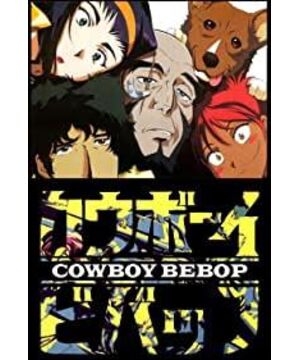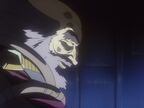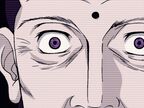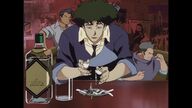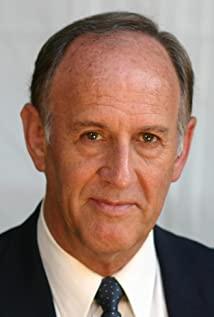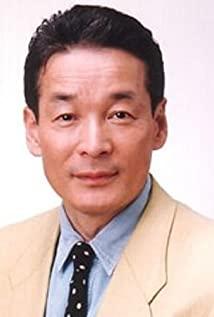Click here to see the original text of Daily Texan: the original text of the interview
[Note: I saw a very interesting interview article today, which was done after Supervisor Watanabe gave a speech in the United States in 2006, and a part of the translation was intercepted. Because I talked about several works, I'll put it here on "Cowboy Bebop". 】
Director Watanabe said that music is the source behind many of his works.
He said: "They [fans] praised the soundtrack in my work, which really makes me happy. Sometimes the music comes first and then the animation is done."
For example, there is an Okinawan music in the fourteenth chapter of "Chaos Warrior", and the first half of it is completely preserved in the animation.
"I did Chaos Warriors just for this scene," he said.
Much of the soundtrack in Warriors of Chaos is hip-hop, featuring hip-hop artists such as Shing02. Supervisor Watanabe found it interesting to sample and change previous music material. "It's a lot like my animation process, taking old musical material and making a new mix," he said.
Just as a hip-hop musician can express himself with a microphone, Supervisor Watanabe said, "I want to express myself with a pencil on a blank sheet of paper."
(The paragraph introducing "Genius Party" and the new work is skipped in the middle - referring to the short film "Baby Blue" and the 2012 animation "Apollo on the Slope" respectively)
Daily Texan (hereinafter referred to as DT): Why do you do a speaking tour?
Director Watanabe: The Japan Foundation for International Exchange asked me to come to the United States to speak. They asked me to pick from some American cities and I picked one. The reason for choosing Houston is that it is the hometown of cowboys.
DT: Do you think your work brings animation to more middle-aged and older Americans?
Director Watanabe: I actually don't understand American animation at all. What do you think? Please let me know if there is anything similar to Cowboy Bebop, I'd love to see it.
DT: Did you decide to work with Yoko Kanno when you were working on Macross?
Director Watanabe: When "Macro Stronghold" first started, Yoko Kanno was not well-known. She has no works, and mainly does business cooperation. So I didn't know her at the time. The people at Victor Entertainment highly recommended her to me. I saw all of her commercials and I thought it was great and decided to ask her to write the soundtrack.
DT: Is there a reason she wasn't involved in Warriors of Chaos?
Superintendent Watanabe: I wanted to use hip-hop music in Warriors of Chaos, but she is not a hip-hop musician, so I decided to hire another musician. Someone suggested that I get Yoko Kanno to do some hip-hop music, but I feel like it's imitating hip-hop music without presenting real hip-hop.
DT: Do you plan to collaborate with Yoko Kanno next?
Superintendent Watanabe: I do want to work with her. I have plans to work on the next work, but I haven't decided what to do.
DT: Is Spike's hair black or green?
Supervisor Watanabe: Dark green.
DT: You said in your speech that the characters you create are always hungry and always short of money. In Cowboy Planet, why do characters like Spike and Fay have no money to eat, but to buy cigarettes?
Supervisor Watanabe: Actually, in my cowboy universe, cigarettes are especially cheap. And let me say one more thing, how do you know it's really smoke? Let's stop there. 【laugh】
DT: When you were doing "Mushroom Samba", episode 17 of "Cowboy Bebop", did you study the behavior and state of people (including the dog Ain) after eating hallucinogenic mushrooms?
Director Watanabe: It's all my own imagination. If I don't say that, I'll be arrested. But Ain is not an ordinary dog, you should know, Ain is a data dog. Unlike ordinary dogs, data dogs will have abnormal reactions. However, I don't know much about data dogs.
DT: Have you been involved in the development of games related to Cowboy Bebop and Chaos Warrior?
Director Watanabe: No. I have seen some. But I'm usually too busy doing animation, so I don't have time for video games. It's not my fault if the game isn't fun.
DT: You mentioned in your presentation that the characters you felt most like yourself were Unreal and Spike. Can you explain?
Supervisor Watanabe: First of all, I often shoot people, slash people with knives... Just kidding [laughs]. Spike and Wuhuan don't express their feelings directly. For example, even if the girl they like is standing in front of them, they won't directly chase her - in fact, they will do the opposite, almost ignoring her. I think it's kind of like me. To sum up, it is almost more antagonistic, or more rebellious.
DT: Are you talking about the relationship between Spike and Faye?
Director Watanabe: Of course. Someone would ask me, "What does Spike think of Fei?" I think he actually likes her quite a bit. But he's not a straight guy, so he'll make sure he doesn't show it.
DT: The fifth episode of Cowboy Star, Ballad of Fallen Angels, seems to foreshadow the final episode. Is there a relationship between the two?
Supervisor Watanabe: The number of episodes in which Bishas appears in Cowboy Star is directly related to the ending. I already thought about the ending before I did the first episode. Although I figured out the ending, my staff strongly disagreed. They were unhappy because then there was no way to do a sequel. So I told them I would reconsider, but in the end I went with the plan I started with.
DT: Spike passed away, did you get negative reviews?
Director Watanabe: I never officially stated that Spike was dead. Now, all I can tell you is that I'm not sure of his life or death. I think people should hate me making a sequel more than being criticized for writing Spike to death.
DT: You must have heard this question many times, and I'm sorry I have to ask it again.
Director Watanabe: Let's go [laughs]. Kidding.
DT: Are we going to see more cowboy animation?
Director Watanabe: One day... Maybe, one day.
DT: Is there any difference between making a movie and making an animated series?
Supervisor Watanabe: One of the characteristics of animation is that you only have 20 minutes, so you can't tell a long story. I think the movie tells a longer story. For example, there is a 20-minute robot animation in the movie, and if I were to do it in an animated episode, it would take up an entire episode.
DT: I often hear from animators that they waited a long time for the opportunity to independently supervise. How did you do it so quickly?
Superintendent Watanabe: The animation industry is less dependent on age or educational experience, and more on a person's skills and luck. Personally, the first animation I supervised, Cowboy Bebop, was a hit, and because of its success, I had the opportunity to do film supervision. It doesn't really matter how much skill you have. If you don't have a famous work, or a hit work, it's very difficult for you to get this opportunity. With that in mind, I consider myself lucky.
The original text is as follows
Watanabe explained that music is often the driving force behind many of his works.
"I'm so happy when they [fans] praise my works for the music," he said. "There are times when music comes before the animation."
For example, Episode 14 of "Samurai Champloo" features a piece of Okinawan music that plays uninterrupted for the first half.
"I made 'Samurai Champloo' the series in order to make this scene," he said.
A great deal of Champloo's soundtrack is hip-hop from artists such as Shing02. The art of sampling old music and changing it intrigued Watanabe. "The technique of using old music and remixing it into something new is very similar to what I was doing with the animation," he said.
Much like hip-hop rappers can represent themselves with a single microphone, Watanabe said, "I would like to represent myself with a single pencil on a blank piece of paper."
Watanabe concluded his lecture by announcing three new projects to begin showing next year, though he was reluctant to give away any details. The first is a short film with a "boy-meets-girl" story called "Genius Party." He also verified that he is working on a live-action film and an anime series that will be "very mysterious and different from the past [works]."
It was with all of this in mind that I made the journey through the off-limits corridors of the museum to meet Watanabe himself. I found him sitting in a conference room regularly used by the museum's public relations department, with an interpreter beside him and a stack of memorabilia to be signed in front of him. There were posters, DVDs, CDs and a pair of neon yellow hot pants made by a fan to look like the clothing worn by the character Faye Valentine in "Cowboy Bebop." A museum aide joked with Watanabe to hurry with the autograph, because the fan may be waiting in the lobby wearing a trench coat. What she was wearing while her pants waited for a signature is anybody's guess.
Hot pants aside, Watanabe looked relaxed and eager to answer questions about his past, his future and whether Spike's hair is, in fact, green.
Daily Texan: What made you decide to go on a lecture tour?
Shinichiro Watanabe: I was requested by the Japan Foundation to come to America and speak. They provided a series of location choices within the States, and from there, I made a selection. The reason I chose Houston is because it's the hometown for cowboys.
DT: Do you think your work is making animation more accessible to older age groups in America?
W: Actually, I don't know much about American animation at all. So what do you think? If there's anything that's similar to "Cowboy Bebop," please let me know. I'd like to see it.
DT: Was it your decision to work with Yoko Kanno as a composer for "Macross Plus?"
W: At the time "Macross Plus" started, Yoko Kanno didn't have a name. She hadn't made a sound track. She was mostly working in the commercial industry. So I really didn't know anything about her. Somebody from Victor Entertainment recommended her strongly. I reviewed all of the commercials that her work was used in. While I reviewed these, I was impressed with what I heard and decided by all means yes, I would like to use her.
DT: Is there a particular reason why she wasn't used in "Samurai Champloo?"
W: I wanted to use hip-hop music in "Champloo" and since Yoko Kanno is not a hip-hop musician, I decided to use other people. There were some people that suggested we ask Yoko Kanno to create some hip-hop music , but I felt that that would be more of an imitation of hip-hop music than the real thing.
DT: Any chance of teaming up with Yoko Kanno again on your new projects?
W: I do want to work with Yoko Kanno, and I do have plans to work with her again on a future project, I just haven't decided exactly which project yet.
DT: Is Spike's hair black or green?
W: dark green.
DT: In your lecture you said that you create characters who are constantly hungry and short on cash. In the case of "Cowboy Bebop," how are characters such as Spike and Faye able to afford smokes when they can't buy food?
W: Actually, in my cowboy universe, tobacco is incredibly cheap. And if I go on and say a little more, how do you know it's really tobacco? We'll leave it at that. [Laughs].
DT: For the "Mushroom Samba" episode of "Bebop," did you research how people, not to mention Ein the dog, would act under the influence of narcotic mushrooms?
W: It's completely my imagination. If I don't say that, I might be arrested. But Ein isn't just an ordinary dog. You may know this, but Ein is considered a data dog. As a data dog, he's different from a regular dog and has an unusual reaction or response. But actually, I don't know that much about data dogs myself.
DT: Are you involved with the video game versions of "Bebop" or "Champloo?"
W: Actually, no. I've seen a little bit of them. But I was often so busy creating the animation side of it that I didn't have any time to dedicate over to the video game side of it. So if the games aren't all that interesting, it's not my fault.
DT: You said in your lecture that the characters you relate most to are Mugen and Spike. Care to explain?
W: First, I'm often shooting people and slashing them up with a sword ... It's a joke. [Laughs] Spike and Mugen aren't very straightforward in expressing themselves. For example, even if there's a girl they like standing right in front of them, they don't pursue her directly - in fact, they do the opposite, they ignore her almost. I think that part is kind of like me. If I was to sum it up, it's kind of like being a little contradictory or rebellious.
DT: Are you talking about Spike's relationship with Faye?
W: Of course. Sometimes I'm asked the question, 'What does Spike think of Faye?' I think that actually he likes her quite a bit. But he's not a very straightforward person so he makes sure he doesn't show it .
DT: Episode five of "Bebop," "Ballad of Fallen Angels," seems to be foreshadowing the events of the final episode. Is there a connection?
W: Actually all of the episodes that contain Vicious that come out in "Cowboy Bebop" are directly related to the ending. Even before I made the first episode, I already had the ending in mind. Even though I had the ending in mind by myself, I was opposed by my staff. They were upset because they were saying that we wouldn't be able to make a continuation. So I told them I'd think about it a little more, but ultimately I decided to go with my original idea.
DT: Have you received any negative feedback for Spike's death?
W: I've never officially said that he's died. At this point, I can tell you that I'm not sure if he's alive or dead. I think probably rather than being yelled at for killing Spike, I think ... people are more upset that I might make a continuation.
DT: I'm sure you've heard the next question a thousand times, and I apologize for asking again.
W: Then I pass. [Laughs]. I'm joking.
DT: When are we going to get to see more "Bebop"?
W: Someday... maybe, someday.
DT: How was working on a movie different from the series?
W: One thing is that with a TV series, you only have 20 minutes, so you can't convey a long story. I feel like I was able to convey a longer story in the movie. For example, in the movie there is a 20-minute mecha scene. If I were to do that in the TV series, it would take up an entire TV episode.
DT: It's common to hear animators remark about how long it takes them to be offered a solo directing opportunity. How were you able to do this so quickly?
W: The animation industry is one that doesn't really rely on age or educational background. Rather, it depends more on a person's skill and on luck. So for myself, the first TV series I directed, "Cowboy Bebop," was a hit, and as a result of its success, I was offered the opportunity to direct a film. It doesn't really matter have much skill you have, if you don't have a hit work, a popular piece, you won't get any offers to make a film. In that respect, I consider myself lucky.
View more about Cowboy Bebop reviews


